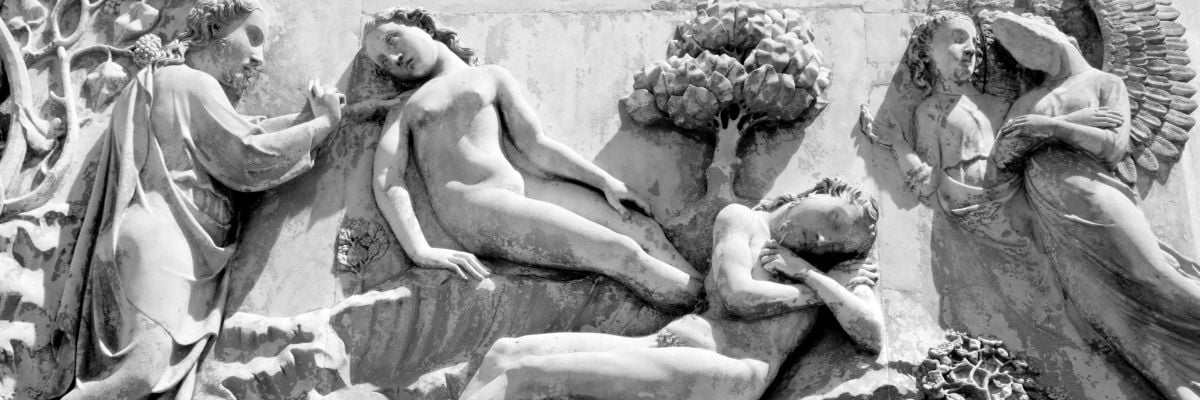
Question:
Answer:
Pope Pius XII addressed this question in his 1950 encyclical Humani Generis. He identifies this belief as a “conjectural opinion” and denies the children of the Church the liberty to hold such an opinion. His reason is it’s apparent inconsistency with the transmission of original sin:
It is in no way apparent how such an opinion can be reconciled with that which the sources of revealed truth and the documents of the teaching authority of the Church propose with regard to original sin, which proceeds from a sin actually committed by an individual Adam and which, through generation, is passed on to all and is in everyone as his own (sec. 37).
It is true that Pius XII’s rejection of “polygenism” (the belief that we descended from multiple sets of first parents) is not infallible. Nevertheless, it is a teaching that carries with it a high degree of magisterial authority.
Even the Catechism of the Catholic Church seems to affirm the belief that Adam and Eve were not mere symbols but literally our first parents:
- It teaches that Eve in some manner was created from Adam (CCC 371).
- It contrasts the first Adam with Christ (CCC 359).
- It refers to Adam and Eve as our “first parents” created in an original state of justice and holiness (CCC 375), which they lost when they sinned (CCC 399-400).
- It identifies Adam as the source of sin in contrast to Christ as the source of grace (CCC 388).
- It affirms St. Paul’s teaching in Romans 5:18 that by one man’s sin all of humanity is affected (CCC 402).
- It teaches that all men are Adam’s descendants and are implicated in his sin (CCC 404).
- It teaches that Adam and Eve transmitted to their descendants human nature wounded by their own first sin (CCC 417).
There is no indication in these passages, or in the many other passages where the Catechism references Adam and Eve, that the Church believes the biblical Adam and Eve represent a number of our first parents.
See also our tract “Adam, Eve, and Evolution.”



